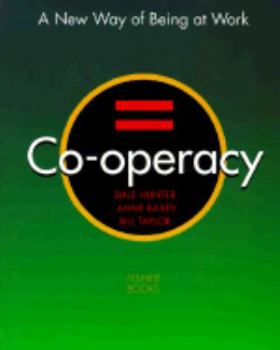Co-Operacy: A New Way of Being at Work
How to create a workplace based not on hierarchy but on consensus-based relationships, teams, and groups. This description may be from another edition of this product.
Format:Paperback
Language:English
ISBN:1555611621
ISBN13:9781555611620
Release Date:May 1998
Publisher:Da Capo Lifelong Books
Length:260 Pages
Weight:0.81 lbs.
Dimensions:0.7" x 6.1" x 7.5"
Customer Reviews
1 rating
The uses of consensus and how to build it.
Published by Thriftbooks.com User , 24 years ago
"Co-operacy", say the authors, "is a word we coined to describe the technology of collective or consensus decision making as distinct from democracy or autocracy. By technology we mean beliefs, values, methods, processes and techniques that enable collective decision making to work successfully"The authors say that their purpose in this book is 'to explore and develop ways in which working together co-operatively as peers can become easier, more effective and more accessible'. They succeed. It is well structured to open and address important questions about working in relationship, and it contains useful tools and exercises to help to develop cooperative working. Perhaps the main virtue of the book is its simplicity and directness.The three parts first lay out the underlying ideas, then explore the relationships within which a peer approach can be applied and finally offer over 60 exercises designed to help in developing peer partnerships.The underlying belief on which their processes are based is that 'the best decisions for social organisation are made by involving everyone affected by the decision'. There are very strong parallels between the philosophies and processes that they advocate and those that are necessary to successful search conferences (see authors like Weisbord "Discovering Common Ground' and Bunker and Alban 'Large Group Interventions'). The difference is that Hunter and her colleagues are exploring how widely these beliefs and processes can be used across the whole range of decision making and interaction.






